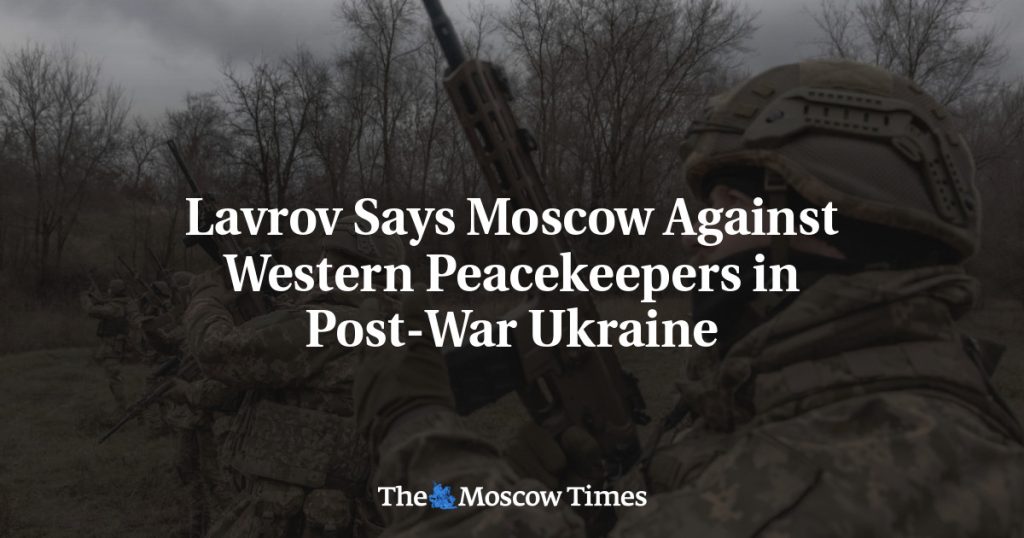Russian Foreign Minister Sergei Lavrov has stated that Moscow would not support the deployment of Western peacekeeping forces to Ukraine as a part of any potential settlement to end the ongoing conflict. French President Emmanuel Macron and Polish Prime Minister Donald Tusk had suggested the idea of foreign troops being stationed to enforce a peace deal between Russia and Ukraine, but Lavrov expressed opposition to this proposal. He also criticized other ideas being put forward, such as postponing Ukrainian NATO membership for 20 years and sending a peacekeeping contingent of British and European forces to Ukraine. The Kremlin has previously stated that it is too early to discuss the involvement of peacekeepers in the conflict.
In contrast, U.S. President-elect Donald Trump has mentioned that he could reach a peace deal within 24 hours of taking office on Jan. 20. While Trump has not presented a specific plan, members of his team have considered options like deploying European troops to monitor a ceasefire along the front line and delaying Kyiv’s aspirations to join NATO. Despite the differing opinions, direct talks between the Russian and Ukrainian presidents have been ruled out, and there is a significant gap in positions between Kyiv and Moscow regarding the terms of a possible peace agreement. Russian President Vladimir Putin has previously demanded that Ukraine remove its troops from regions that Russia claims to have annexed, while Kyiv has emphasized that it will not give up territory in exchange for peace.
The refusal to consider peacekeeping forces from Western countries in the conflict reflects Russia’s stance on maintaining control over the situation in Ukraine and possibly protecting its interests in the region. By opposing the deployment of foreign troops, Moscow may be aiming to assert its authority and influence in the negotiations to end the conflict. The differing perspectives on the involvement of peacekeeping forces highlight the complex nature of the conflict in Ukraine and the challenges in reaching a resolution that satisfies all parties involved.
The reluctance to engage in direct talks between the Russian and Ukrainian presidents suggests a lack of willingness to compromise on key issues that have contributed to the conflict. The demand from Moscow for Ukraine to withdraw its troops from contested regions, coupled with Kyiv’s insistence on not ceding territory, indicates the significant obstacles to reaching a peace agreement. The diverging positions on crucial matters make it challenging to find common ground and negotiate a settlement that meets the needs and concerns of both sides.
As tensions persist and negotiations continue, the role of external actors like the U.S. and European countries in facilitating a peace deal remains uncertain. The proposals and ideas put forward by different parties, including the postponement of Ukrainian NATO membership and the deployment of peacekeeping forces, underscore the complexity of the conflict and the difficulties in finding a viable resolution. The involvement of various stakeholders with diverging interests adds another layer of complexity to the peace process, raising questions about the prospects for ending the conflict in Ukraine and achieving lasting stability in the region.


